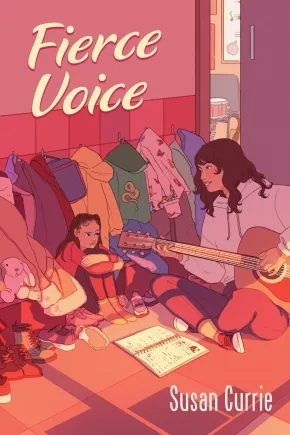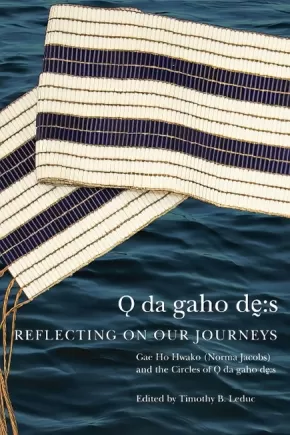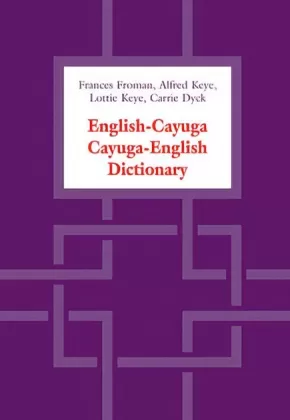Cayuga
Synopsis:
Words bawling…Melody howling…Fierce Voice rising
Iz has everything she's ever wanted: she’s found the foster home of her dreams and is attending the prestigious music school she moved heaven and earth to get into. But secrets from her past keep threatening to spill into the present, and Iz is sure that her newfound loved ones will abandon her if they learn of her terrible history.
Despite these fears, Iz does her best to settle into her new life. Hoping to give at-risk children the musical experiences she longed for when she was little, she joins with her classmates and Teo (the boy she sort of kissed and then ghosted all summer) to start a musical outreach program at the community centre she used to go to.
She isn’t quite prepared for the chaotic group of children she’s paired with. And she’s even less ready for Skye, an angry foster kid who challenges everything Iz holds dear, gets a little too close for comfort, and has her own terrible secret.
To help Skye, Iz must make a dreadful choice—a decision that could free them both from their demons or completely destroy everything Iz has fought so hard for. Is raising her voice worth the risk?
Fierce Voice is the sequel to the White Pine Award nominee Iz the Apocaylpse.
Educator & Series Information
Recommended for ages 12 to 18.
This book is part of The Métier Quartet series.
Additional Information
280 pages | 6.00" x 9.00" | Paperback
Synopsis:
A fierce voice longs to break free. A spark ignites inside fourteen-year-old Iz Beaufort when she hears school music group Manifesto perform. Even though she hasn’t written a song since That Place, she recognizes herself in the moving performance and longs to be part of the group, certain that they might actually understand her. But Manifesto is based at the prestigious Métier School, and Iz has bounced through twenty-six foster homes. Plus, there’s no way Dominion Children’s Care would ever send a foster kid to a private school when a public option is available. So Iz does what any passionate, broken, off-the-chart wunderkind might and takes matters into her own hands. Iz fakes her way in only to face a new set of challenges: tuition fees, tough classwork, and new classmates she can’t immediately identify as friends or foes. And if she can’t handle all this while keeping how she got into Métier a secret, she could get kicked out of both school and her current home. But a life with music—a life where Iz gets to have a voice—might be worth risking everything.
Reviews
"A compassionate, character-driven story that will particularly resonate with music lovers." - Kirkus
Educator Information
Recommended for ages 12 to 18.
Additional Information
230 pages | 9.00" x 6.00" | Paperback
Synopsis:
A transformative journey, guided by Elders’ teachings, that prompts reflection on the values that foster good relations.
In the words of Cayuga Elder Gae Ho Hwako Norma Jacobs: “We have forgotten about that sacred meeting space between the Settler ship and the Indigenous canoe, Odagahodhes, where we originally agreed on the Two Row, and where today we need to return to talk about the impacts of its violation.”
Odagahodhes highlights the Indigenous values that brought us to the sacred meeting place in the original treaties of Turtle Island, particularly the Two Row Wampum, and the sharing process that was meant to foster good relations from the beginning of the colonial era. The book follows a series of Indigenous sharing circles, relaying teachings by Gae Ho Hwako and the responses of participants - scholars, authors, and community activists - who bring their diverse experiences and knowledge into reflective relation with the teachings. Through this practice, the book itself resembles a teaching circle and illustrates the important ways tradition and culture are passed down by Elders and Knowledge Keepers. The aim of this process is to bring clarity to the challenges of truth and reconciliation. Each circle ends by inviting the reader into this sacred space of Odagahodhes to reflect on personal experiences, stories, knowledge, gifts, and responsibilities.
By renewing our place in the network of spiritual obligations of these lands, Odagahodhes invites transformations in how we live to enrich our communities, nations, planet, and future generations.
Reviews
“This book is a testament to the power of respectful, collaborative thinking and the merging of Indigenous intellectual tradition with a Western academic approach. It is engaging, deeply thoughtful, sincere, and uplifting, exactly the kind of work that is needed now to assist in the rebuilding of relationships amongst, and between, Indigenous communities and non-Indigenous Canadians.” - Rick Monture, Six Nations of the Grand River / McMaster University
Additional Information
336 pages | 6.00" x 9.00" | Hardcover
Synopsis:
The first comprehensive lexicographic work on Cayuga, an Iroquoian language spoken in southern Ontario at Six Nations of the Grand River, this dictionary, combines the work of Dyck, a professor of linguistics, and Froman, Keye, and Keye, all Cayuga language teachers at Six Nations. It contains over 3000 entries, including 1000 verb forms and many nouns never before printed; extensive cross-referencing, thematic appendices that highlight cultural references and provide 1600 further entries, and a short grammatical sketch complete this accomplished work.
Entries in the main dictionary are organized by bases, which will make the dictionary especially helpful to those learning Cayuga as a second language. The dictionary's accuracy and extensiveness will make it an indispensable reference not only to the Cayuga speaker and student, but also to other Iroquoian speakers, linguists, anthropologists, and historians of Indigenous Peoples.
Produced under the auspices of the Sweetgrass First Nations Language Council Inc.
Reviews
"The first extensive dictionary of Cayuga, this benchmark work documents the language in 3,000 entries and in word lists organized thematically in appendixes ... A valuable tool for linguists of Iroquoian languages and anthropologists, as well as those who study the Cayuga language. Summing up: Highly recommended."— R. Hanson, Choice
"A major milestone in Iroquoian studies and an extremely important tool in the preservation of the Cayuga language."— Blair A. Rudes, Department of English, University of North Carolina at Charlotte
Additional Information
786 pages | 6.88" x 9.73" | Paperback










